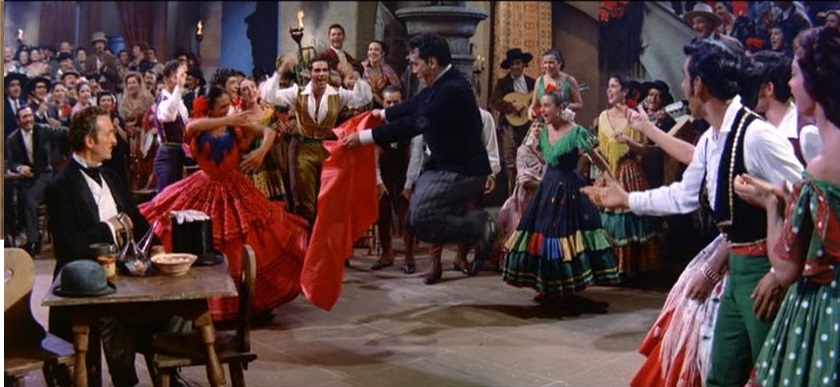


The problem is that these individual vignettes are rarely propulsive on their own. I don’t think any of the updates are especially enlightened in their revised reflection on globalism circa 1870-something, but reducing the amount of avoidable racism and xenophobia is ideal. The opening installment in Paris is part Les Miserables and part Day of the Jackal. Fogg’s travels through the United States now remove Native Americans entirely and focus on the post-Civil War rupture.

In this telling, those jaunts in Hong Kong and India become commentaries on the occupying British presence in both countries. Yes, Fogg learns valuable lessons as he goes, but the initial depictions of the various populations he meets are, to put it gently, of their time. This is largely for the best, actually, since Verne’s stops are often a colonialist nightmare seen through today’s eyes. Some of the locations the trio visits along the way - Hong Kong, a monolithic “India,” an equally monolithic “American Frontier” - remain intact, but almost none of the escapades in those locations remain the same. Fix, a detective and primary impediment to Fogg’s progress in the book, has become an underestimated woman trying to carve out a place in a sexist-but-changing world. Passepartout has become a Black French national with a shady past and reasons for joining Fogg that are barely substantiated.

The terms of the bet rise to 20,000 pounds and off Fogg goes, accompanied by a mysterious new valet in Ibrahim Koma’s Passepartout and Abigail Fix (Leonie Benesch), the author of the original news report who hopes to make her name on missives about the trip.Īlready, Verne readers will notice key changes. Like the British Empire itself, Fogg is in a rut, so when he reads a newspaper report suggesting that, thanks to the opening of a railroad line across India, it’s now theoretically possible to circumnavigate the globe in 80 days, it piques something in his British reserve.įogg’s interest in the story and the mere concept of this increasingly connected world lead his even snootier chum Bellamy (Peter Sullivan) to propose a wager that Fogg, so set in his ways that he has barely left London, won’t be the one to make that journey. Every day at precisely 10, Fogg goes to the calcified Reform Club and debates the news of the day with his fellow aristocrats every day he eats the same calcified lunch of boiled beef and brown Windsor soup and every day he returns to his cavernous home and his calcified butler and the cycle repeats. It’s a story with a ticking clock literally in the title and yet this adaptation is largely devoid of adventure or fun and doesn’t work nearly well enough as serious drama to compensate.įor those who don’t, in fact, remember the plot of Around the World in 80 Days from previous adaptations, it’s the story of Phileas Fogg (David Tennant), a dour elitist with no sense of life’s purpose.
BOOK REVIEW OF AROUND THE WORLD IN 80 DAYS PLUS
Creators Ashley Pharoah and Caleb Ranson, plus director Steve Barron, have occasional insights into making the context of the book - a familiar title probably best known to current audiences from previous adaptations rather than the book itself - feel relevant, but they’ve lost any sense of what ought to be a narrative with a propulsive momentum. on PBS under the Masterpiece banner, captures some of the bittersweet undercurrents of Phileas Fogg’s life and quest.
BOOK REVIEW OF AROUND THE WORLD IN 80 DAYS TV
The new eight-episode adaptation, produced through an alliance of European TV entities and airing in the U.S. Like I said, whatever is a modern reader to relate to in Around the World in 80 Days? Even before the added encumbrances of COVID safety (to say nothing of post-9/11 security), we’d made fast, comfortable, accessible travel as fantastical as journeying to the center of the earth or the depths of the ocean.Ĭast: David Tennant, Ibrahim Koma, Leonie BeneschĬreated By: Ashley Pharoah and Caleb Ranson, from the book by Jules Verne We make jokes about a California bullet train instead of constructing a California bullet train. We had planes that went New York-to-London in 3.5 hours, but we stopped using them. We have all the knowledge of the world on thin slabs in our pockets, but we stopped actually going to the moon 50 years ago. One thing I’ll acknowledge about the endeavors of Jeff Bezos, Rupert Murdoch, Scrooge McDuck and Elon Musk is that at some point, our technological advancements stopped looking outward. I get why it might be hard for contemporary audiences to relate to Jules Verne’s 1873 novel Around the World in 80 Days, a saga of wealthy individuals so isolated from the realities of their time that they propose travel challenges that benefit only themselves at a price tag that could cure global hunger, expecting all of humanity to genuflect.


 0 kommentar(er)
0 kommentar(er)
